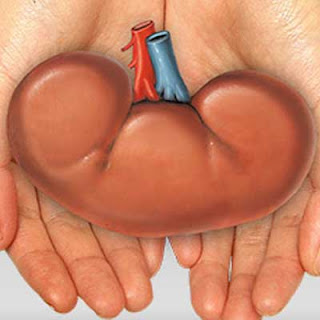Kidney failure is potentially debilitating. However, contrary to what most people believe in, this disease does not always equate to great limitations or even immediate end of life. If you are diagnosed with this condition, know that there are a lot of ways for you to still enjoy life
Treatment
There are two main treatment options for kidney failure. Although these approaches cannot reverse the damages done to your kidneys, complying with any of the two will help prevent disease progression.
Hemodialysis
Hemodialysis involves the removal of waste products and excess fluid out of your system through a dialysis machine and a special filter called dialyzer. Typically, this treatment averages 4 hours per session and is usually done in a dialysis centre three times a week.
Aside from in-centre approach, hemodialysis has another form, peritoneal dialysis, which you can do at home or at work. It requires a daily session, a cleansing solution called dialysate and the skills to perform the procedure.
Kidney Transplantation
This is an invasive surgical procedure involving the placement of healthy kidneys, either from a living donor or someone who has just passed away. Although promising, this approach does not offer a complete guarantee that you’ll be cured or that your condition will be reversed. It entails several risks, including rejection, the need for continuous dialysis or even a secondary transplantation surgery.
Management
Discipline and fostering a healthier lifestyle are essential aspects in preventing your condition from worsening. Aside from adhering to your treatment plan, here are the other things you need to consider in order to live a productive life:
Diet
Because there are damages in your organs, waste products tend to accumulate and become toxins in your system.
● Controlled protein intake is generally recommended.
● Salt intake should be low to prevent high blood pressure and fluid retention.
● Potassium intake may depend on the severity of your kidney failure.
● Fluid intake is mostly limited.
● If you are overweight, losing a few pounds may be necessary.
Exercise
Depending on your physical capability, exercise may prove to be beneficial in improving your condition. Before starting on any of the following, be sure to consult your attending physician first.
● Balance exercises can help reduce the risk of accidental falls. They are not physically demanding in general. As a matter of fact, holding a standing pose for a few seconds can immensely help.
● Aerobic exercises can assist in improving both your heart and lungs. Walking and biking for a few minutes are some of your best options under this type of activity.
● Flexibility and resistance exercises, as the name implies, can improve mobility and prevent joint stiffness in kidney failure patients.
Treatment
There are two main treatment options for kidney failure. Although these approaches cannot reverse the damages done to your kidneys, complying with any of the two will help prevent disease progression.
Hemodialysis
Hemodialysis involves the removal of waste products and excess fluid out of your system through a dialysis machine and a special filter called dialyzer. Typically, this treatment averages 4 hours per session and is usually done in a dialysis centre three times a week.
Aside from in-centre approach, hemodialysis has another form, peritoneal dialysis, which you can do at home or at work. It requires a daily session, a cleansing solution called dialysate and the skills to perform the procedure.
Kidney Transplantation
This is an invasive surgical procedure involving the placement of healthy kidneys, either from a living donor or someone who has just passed away. Although promising, this approach does not offer a complete guarantee that you’ll be cured or that your condition will be reversed. It entails several risks, including rejection, the need for continuous dialysis or even a secondary transplantation surgery.
Management
Discipline and fostering a healthier lifestyle are essential aspects in preventing your condition from worsening. Aside from adhering to your treatment plan, here are the other things you need to consider in order to live a productive life:
Diet
Because there are damages in your organs, waste products tend to accumulate and become toxins in your system.
● Controlled protein intake is generally recommended.
● Salt intake should be low to prevent high blood pressure and fluid retention.
● Potassium intake may depend on the severity of your kidney failure.
● Fluid intake is mostly limited.
● If you are overweight, losing a few pounds may be necessary.
Exercise
Depending on your physical capability, exercise may prove to be beneficial in improving your condition. Before starting on any of the following, be sure to consult your attending physician first.
● Balance exercises can help reduce the risk of accidental falls. They are not physically demanding in general. As a matter of fact, holding a standing pose for a few seconds can immensely help.
● Aerobic exercises can assist in improving both your heart and lungs. Walking and biking for a few minutes are some of your best options under this type of activity.
● Flexibility and resistance exercises, as the name implies, can improve mobility and prevent joint stiffness in kidney failure patients.



